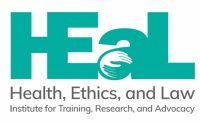Short-Duration Intensive Training Program in Social Science and Public Health Research Ethics. September 6, 2022 to November 8, 2022
Organisers:
- Forum for Medical Ethics Society (FMES), Mumbai; FMES’ Health, Ethics, and Law Institute for Training, Research and Advocacy (HEaL Institute) in collaboration with
- Indira Gandhi Institute of Development Research (IGIDR), Mumbai
- Vidhayak Trust (VT), Pune
Day & Dates: Tuesday, September 6 to November, 8, 2022| 1600 – 1930 hrs Virtual
About the course
The course curriculum has a legacy of 15 years to which a number of scholars including those trained in bioethics have contributed. Over time they developed research ethics case studies from the Indian context. These serve as one of the key resources for the course.
The course aims to equip course participants with knowledge and skills in research ethics. They would serve as significant human resource to take the learnings to their own ecosystems and facilitate knowledge transfer in research ethics.
Goal: To enable participants to appreciate the salience of research ethics in upholding research integrity; and identify and apply ethical reasoning to social science research in health and to public health research
Specific objectives:
- To learn about history and origins of research ethics discourse and principles in research ethics in social sciences and public health research and their relevance to contemporary research in social sciences and public health.
- To strengthen the awareness of participants of ethical issues in research involving human participants, and their appreciation of the need for research integrity
- To draw upon the key resources in international ethics guidance such as the Tri-Council Policy Statement, Canada; the Helsinki Declaration, and other ethics guidelines issued by both national and international organizations, pertaining to the social sciences and public health fields; and help locate them in local contexts.
- To strengthen the understanding of specific concepts in research ethics (privacy, confidentiality, standard of care, informed consent process, collaborative research, publication ethics, research integrity,); and appreciate research ethics challenges specific to research design, special groups with enhanced vulnerabilities; situational vulnerabilities in the context of research in social sciences (in health) & public health sciences.
- To learn the application of ethical reasoning to respond to the aforesaid challenges posed by social science (in health) and public health research; and enhancing skills in operationalizing research ethics principles in practice.
Course Faculty:
- Prof Abhijit Nadkarni, Global Mental Health at the London School of Hygiene and Tropical Medicine (LSHTM), UK; Director of the Addictions Research Group, Sangath, Goa, India
- Dr Amar Jesani, MBBS, Independent Researchers and Consultant, Pubic Health and Bioethics, Mumbai; and Editor, Indian Journal of Medical Ethics (IJME)
- Dr Anant Bhan, Adjunct Professor, Yenepoya (deemed to be University), Mangalore, India and Adjunct Faculty, Kasturba Medical College, Manipal, India.
- Prof Calvin Ho, Health Law, Policy & Bioethics – Associate Professor of Law, The University of Hong Kong; Co-Director, HKU Centre for Medical Ethics & Law, Hong Kong; Hong Kong SAR; Advocate & Solicitor of the Supreme Court of Singapore; and Solicitor of the Senior Courts of England and Wales
- Prof Eunice Kamara, Moi University, Eldoret, Kenya
- Prof Lakshmi Lingam, Dean & Professor, School of Media and Cultural Studies, TISS, Mumbai
- Prof Lisa Schwartz, Faculty of Health Sciences, McMaster University; Professor, Health Research Methods, Evidence, and Impact, Faculty of Health Sciences; Member, Centre for Health Economics and Policy Analysis (CHEPA), Faculty of Health Sciences; Associate Member, Philosophy, Faculty of Humanities
- Prof Mala Ramanathan, Achutha Menon Centre for Health Science Studies (AMCHSS), Sree Chitra Tirunal Institute for Medical Sciences and Technology (SCTIMST), Thiruvananthapuram, Kerala, SCTIMST, Trivandrum, India; Working Editor, IJME
- Sandhya Srinivasan, Consulting Editor, IJME; Editorial Board Member, Developing World Bioethics; Member, Network of Women in the Media-India, the Indian Association of Medical Journal Editors, and the World Association of Medical Editors.
- Prof Srijit Mishra, Professor, IGIDR, Mumbai; Former Director, NCDS, ICSSR Institute, Bhubaneshwar, Odisha, India. [Course Director]
- Dr Sunita Sheel Bandewar, PhD (Anthropology) and Masters in Bioethics (Toronto, Canada), Independent Researcher, Pune; Working Editor, IJME; and Director, Health, Ethics and Law Institute of Training, Research and Advocacy, Mumbai-Pune [Course Director]
- Tejal Barai, Independent Sr Research Professional, Mumbai
- Prof Uma Kulkarni, Ophthalmology; Faculty at the Centre for Ethics, Yenepoya deemed to be University, Mangalore, KA, India
- Prof Vina Vasvani, Forensic Medicine Dept; and Director Centre for Ethics Yenepoya (deemed to be University), Mangalore, KA, India
Learning methods:
- Interactive methods involving small batches case studies, short videos; role play; and mock ethics review board meetings.
- Case studies sourced and developed from within India to be complemented by those involved in international collaborative research.
- Mock ethics review boards consisting of the training program participants conducting a mock ERB meeting to evaluate 2-3 anonymised research ethics protocols.




